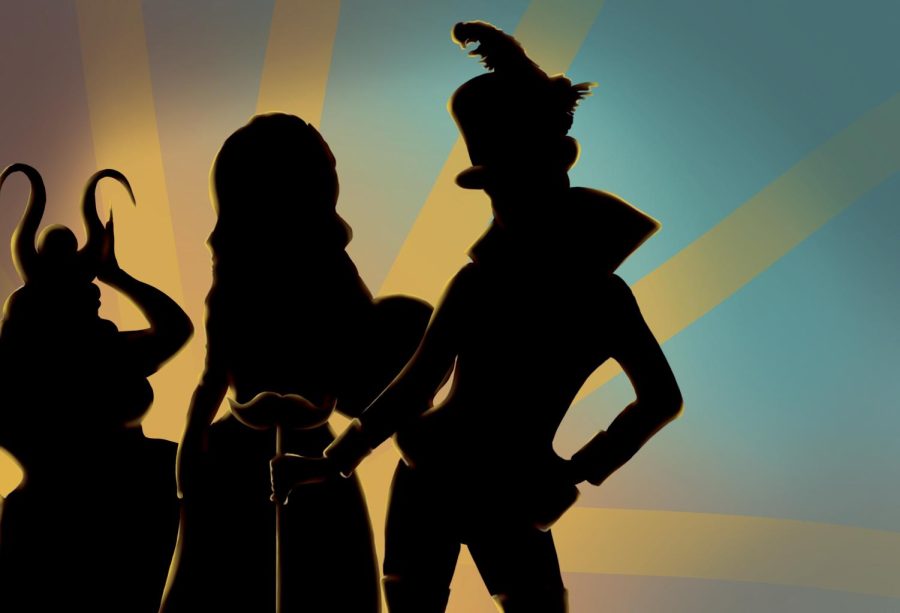Seattle Drag Scene Reignited By Fresh Faces
Whether or not you are familiar with the wigs, outrageous outfits and choreographed dances , watching a drag performance demands all of your attention. Compiling a variety of creative mediums, drag channels an eclectic, unabashed vibrance into performances that command the audience’s senses with palpable excitement and expression.
Theresa Earenfight, a professor and director of Women, Gender and Sexuality Studies at Seattle University, has taken anecdotes from students, friends and performers alike to paint a picture of everything drag encompasses.
“As an art form, [drag] is on par with classical portraiture,” Earenfight said. “It’s a fuller portrait of who a person is, in that sense, it has to have an attention to fashion, and makeup and hair. What drag does is say ‘this is who I am.’ To watch as a spectator is one thing, but to know people for whom this is so much a part of their identity blew me away.”
Seattle U’s campus sits upon Capitol Hill, the crux of the Emerald City’s rich history of drag.
Recent years have taken a toll on a community that thrives on vivacious crowds. Many of the queer-run businesses and organizations in the neighborhood are ghosts of their former livelihood, and this lack of accessible space has been detrimental across the queer community.
Yet, the show must go on: Seattle’s drag scene is slowly recovering from the impacts of the pandemic. Local queen Bosco, who has captured the eyes and hearts of onlookers from around the world, has been imperative in stirring the community towards revival. Without in-person audiences to captivate, many of Bosco’s fans, like Third-year Psychology student Preston Lomond, flock to her social media profiles.
“I went on her Instagram and saw her posing and showing off looks in places that I walk by every day on my way to work,” Lomond said. “It’s great to see representation of people who fall between the binaries.”
Having been selected as one of the queens to compete on the new season of RuPaul’s Drag Race, Bosco’s popularity brought Seattle’s drag scene back to the global stage. In a world of crowd restrictions and social distancing, virtual performances create much more accessible—albeit less communal—spaces for queer expression. Since representation is already its own battle, a program like Drag Race can foster an audience large enough to contest stereotypes and misconceptions strictly through exposure.
Bosco is representing not only the Seattle drag scene, but also non-binary and gender-nonconforming individuals. Offstage, Christopher Constantino identifies as non-binary and prefers they/them pronouns. Even within the drag scene, contention about who can and cannot be a queen remains heated. Bosco is championing an underrepresented and often misunderstood community. If anything, her strength as a competitor silences doubts behind who she is offstage.
“Bosco is a very polished and seemingly well-rounded performer because she is beautiful, she has really detailed style and she’s funny and charismatic,” Lomond said. “I think she could make it pretty far in the show.”
Bosco’s spot as a contestant on Drag Race signifies a fresh, more informed perspective the show’s creators have developed in recent years that has excited new and longtime fans alike. Masa Sawaf, a fourth-year sociology and gender studies student, sees Bosco’s spot in the new season as an all-out win.
“First things first, I’m excited to see a non-binary queen on the show,” Sawaf said. “Seeing as the show has a history of being a little transphobic, I’m hoping that that won’t be the case this time and that it may set a precedent of varying gender identities. Secondly, Bosco is gorgeous! Her ‘signature show-stopping drag look’ was phenomenal and I just know she’s going to be blowing our minds all season long––as any ‘alternative skank’ from Seattle would!”
Bosco has some serious competition this season. Both Lomond and Sawaf are eagerly awaiting coming performances from Willow Pill, as well as other queens.
“It’s something that’s easy to misunderstand, but once you get to know people and realize gender is so much more than just some chromosomal sorting out, the world becomes a richer, better place for all of us,” Earenfight said.
In little ways like these, representation catalyzes into acceptance and beyond. Some may discount drag for its opulence or extraversion, but a world without the wonders of drag would be stark, desolate and incomplete.


